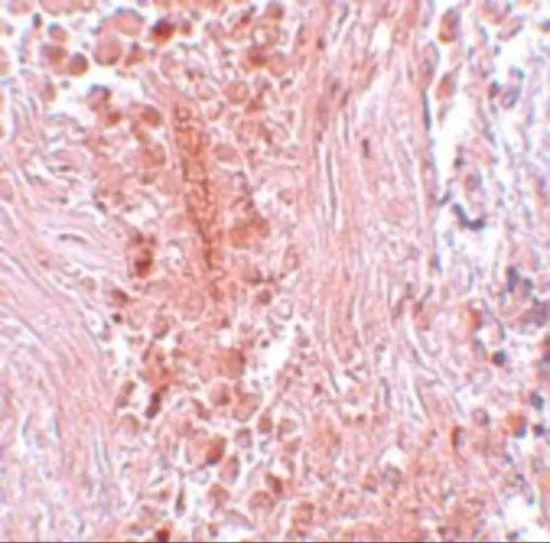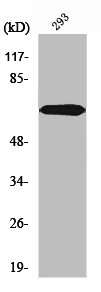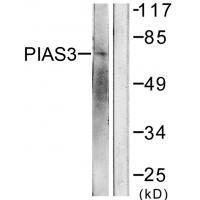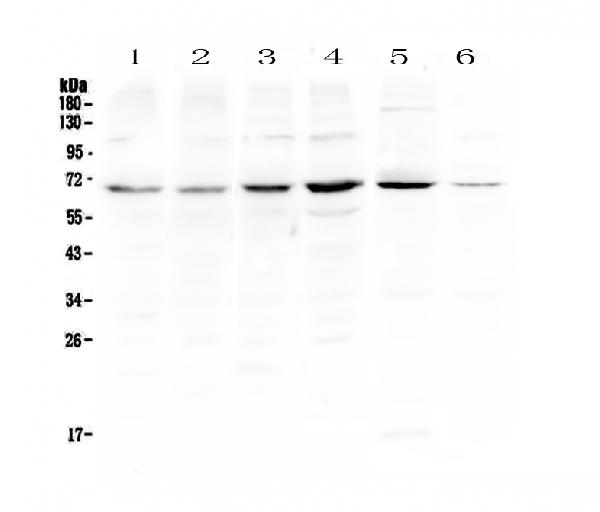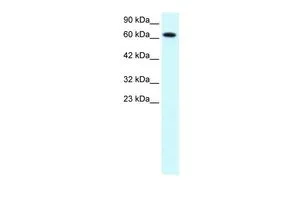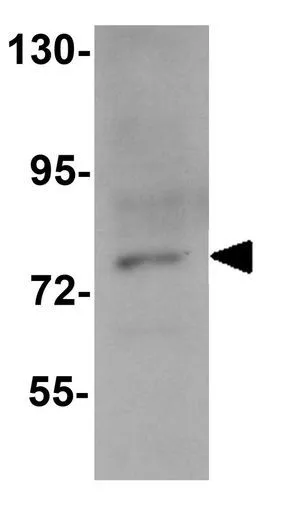
WB analysis of K562 cell lysate using GTX31412 PIAS3 antibody. Working concentration : 1 μg/ml
PIAS3 antibody
GTX31412
ApplicationsWestern Blot, ELISA, ImmunoHistoChemistry, ImmunoHistoChemistry Paraffin
Product group Antibodies
ReactivityHuman, Mouse, Rat
TargetPIAS3
Overview
- SupplierGeneTex
- Product NamePIAS3 antibody
- Delivery Days Customer9
- Application Supplier NoteWB: 1 microg/mL. IHC-P: 5 microg/mL. *Optimal dilutions/concentrations should be determined by the researcher.Not tested in other applications.
- ApplicationsWestern Blot, ELISA, ImmunoHistoChemistry, ImmunoHistoChemistry Paraffin
- CertificationResearch Use Only
- ClonalityPolyclonal
- Concentration1 mg/ml
- ConjugateUnconjugated
- Gene ID10401
- Target namePIAS3
- Target descriptionprotein inhibitor of activated STAT 3
- Target synonymsZMIZ5, E3 SUMO-protein ligase PIAS3, E3 SUMO-protein transferase PIAS3, protein inhibitor of activated STAT protein 3, zinc finger, MIZ-type containing 5
- HostRabbit
- IsotypeIgG
- Protein IDQ9Y6X2
- Protein NameE3 SUMO-protein ligase PIAS3
- Scientific DescriptionThis gene encodes a member of the PIAS [protein inhibitor of activated STAT (signal transducer and activator of transcription)] family of transcriptional modulators. The protein functions as a SUMO (small ubiquitin-like modifier)-E3 ligase which catalyzes the covalent attachment of a SUMO protein to specific target substrates. It directly binds to several transcription factors and either blocks or enhances their activity. Alternatively spliced transcript variants of this gene have been identified, but the full-length nature of some of these variants has not been determined. [provided by RefSeq, Jul 2008]
- ReactivityHuman, Mouse, Rat
- Storage Instruction-20°C or -80°C,2°C to 8°C
- UNSPSC41116161

